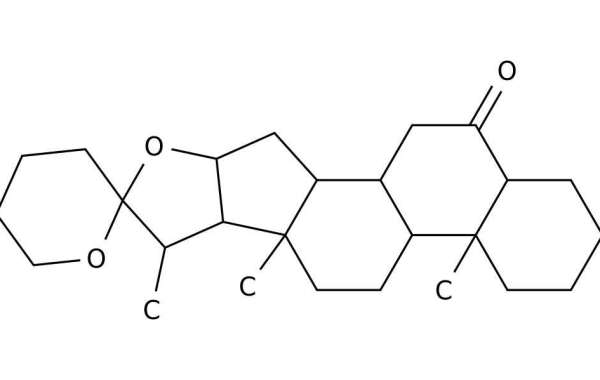Many athletes and bodybuilders have turned to laxogenin because they believe it’s a safer means to gain muscles and enhance performance. But is laxogenin really safe, and how does it actually work? Read on to find out.
What Is Laxogenin?
Laxogenin is not approved by the FDA for any purpose. The available data on its efficacy is limited, mixed, and altogether considered insufficient to support medical use of any kind. Because of the lack of studies, it may also have undiscovered side effects. We do not recommend using laxogenin.
Steroid From Plants
Laxogenin (3beta-hydroxy-25D,5alpha-spirostan-6-one) is a compound sold in various forms as a muscle-toning supplement. It belongs to a class of plant hormones called brassinosteroids, which have a similar structure to animal steroid hormones. In plants, they work to boost growth. The underground stems of the Asian plant Smilax sieboldii contain approximately 0.06% laxogenin and are its main natural source. Laxogenin is also obtained from Chinese onion (Allium chinense) bulbs.
Laxogenin in supplements is produced from the more common plant steroid, diosgenin. In fact, diosgenin is used as a raw material for over 50% of synthetic steroids including progesterone, cortisone, and testosterone. Although often advertised as “natural”, most supplements don’t contain laxogenin but its synthetic derivative: 5a-hydroxy laxogenin (laxosterone). An analysis of 12 different supplements found that 5a-hydroxy laxogenin is always derived from synthetic laxogenin. Importantly, 5 supplements didn’t have 5a-hydroxy laxogenin at all and 8 were contaminated with untested diosgenin.
As opposed to typical muscle-building steroids, laxogenin is not a steroid or prohormone. Its proponents take this to mean that it will not be converted to the more powerful male sex hormones (testosterone and dihydrotestosterone) nor run the risk of raising estrogen. However, we don’t know this, as it’s never been appropriately tested. Furthermore, the evidence for laxogenin’s effectiveness is insufficient, according to sports nutrition authorities. This leaves laxogenin hanging somewhere in the grey area: not entirely natural or synthetic, without evidence of being either dangerous or safe.








